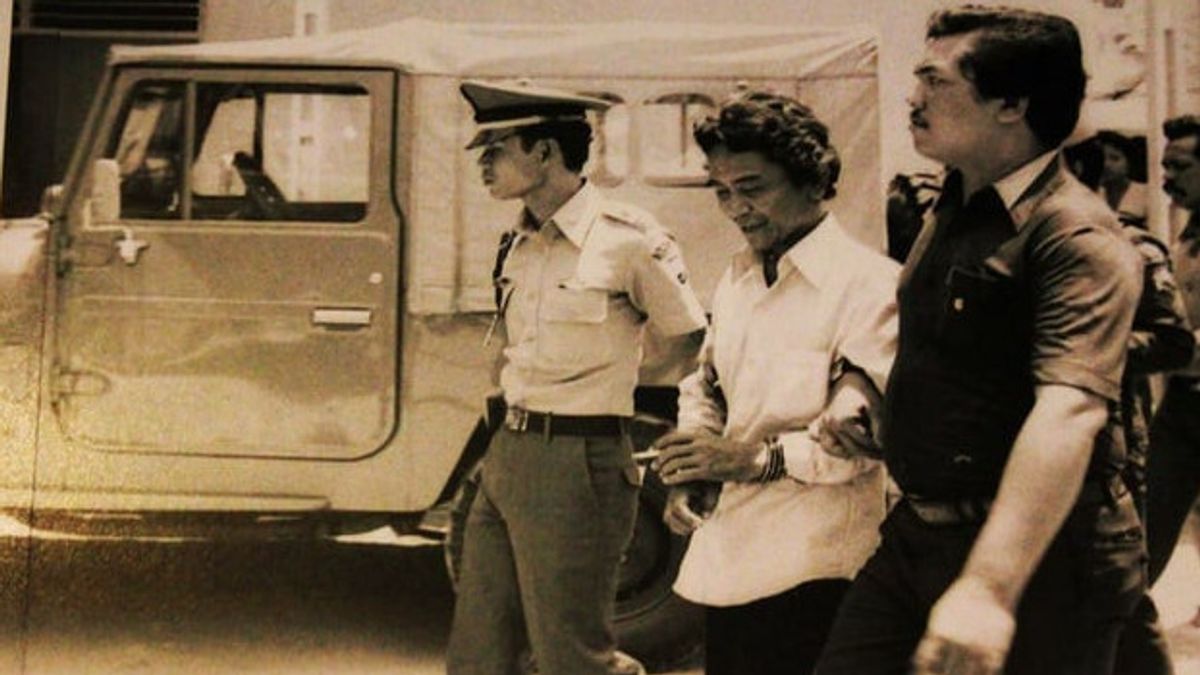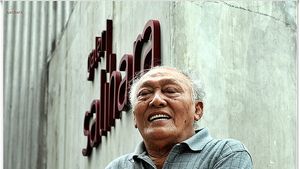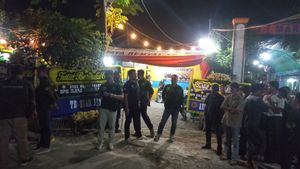JAKARTA - Kusni Kasdut once jumped into defending Indonesia's independence in the revolutionary war. He struggled against the Dutch. However, his services were not needed when Indonesia became independent in a complete manner. His fate was delayed, he lived tenuously.
He also tried the black world. He did not hesitate to rob, kidnap, and kill to survive. He became a legendary criminal until his crimes ended by the New Order (Orba) government. There is no mercy for Kusni Kasdut. He was sentenced to death.
The totality of the man whose real name is Ignatius Waluyo in the revolution war (1945-1949) is second to none. He joined the struggle against the Dutch. The movement of the people from the East Java Front was his choice. He served as a freedom fighter very well. Waluyo, who later became known as Kusni Kasdut, was able to do many roles.
Instead of just carrying weapons, Kusni Kasdut was good at seeking revolution funds. Kusni perpetuated the funds at all costs. Putting the wealth of the rich, especially. This step made him like a Robin hood. It is said that all of this is because Kusni Kasdut often shares his looted products with the poor in the city.
However, Kusni Kasdut's heroism had to end when the Netherlands officially recognized Indonesia's sovereignty in 1949. Kusni Kasdut had to be willing to swallow the bitter pill. The state ignored it. He was denied entry to the military.
The narrative made his life even more ultimate. There is no reliable skill to make money. Kasdut's cusni also chose a shortcut: to enter the black world. He perpetuated the crime in every action he made in getting money. From robbing to killing.
His most popular action was killing a wealthy Arab named Ali Badjened in 1953. then, the action of Kusni Kasdut stealing diamonds at the National Museum (sometimes also known as the Gajah Museum) on May 31, 1961. This action made him the most wanted fugitive in Indonesia.
It was in Kebon Sirih that Kusni Kasdut before committing a gold robbery at the National Museum, once killed a wealthy Arab named Ali Badjened in 1953. Kusni Kasdut in his action was accompanied by Bir Ali, Cikini's son.
Ali Badjened was robbed in the afternoon when he had just left his residence in the Awab Alhajiri area. He died at the same time from a bullet fired from Jeep by this criminal. The incident was shocking at that time because the problem of robbery by killing a victim had not happened much as it is now," wrote Alwi Shahab in the book Batavia, Flood City (2009).
The New Order government did not remain silent. The crimes committed by Kusni Kasdut were considered too numerous and terrible. The position of the New Order is clear. The owner of power does not want to lose to criminals. Kusni Kasdut was then told everywhere.
Kusni Kasdut was caught shortly after the robbery. The government can't wait to impose a sentence. All for the calculation of the sentence of Kusni Kasdut in prison. He had to bear the penalty for killing a police officer in Semarang, Ali Badjened in Jakarta, robbery at a national museum, and other crimes.
The power of attorney finally moved by passing a death sentence to Kusni Kasdut in 1969. Kusni Kasdut did not then accept the death penalty. He continued to try to run the action of escaping from prison many times. He also managed five times (lastly escaped in October 1979) and fled before finally being recaptured. The test that made him move to prison.
The frequent attempt to escape made Kusni Kasdut frustrated. He finally resigned. However, that does not mean Kusni Kasdut was unable to do anything about it. The only option that makes the most sense to Kusni Kasdut is to apply for clemency to President Suharto in 1979. Even if it ends in failure.
The New Order considers the crimes committed by Kusni Kasdut to be extraordinary. The Kasdut cusni also had to mourn his fate in accepting the execution of death in Gresik, East Java on February 16, 1980. The punishment also made the Legendary Criminalist go forever.
On his grave, it will only be written: Ignatius Waluyo. His black name, Kusni Kasdut, has long been declared to run out. All he wanted to leave was a▁bangsaant name. It is a kind of symbol that he is not a human who once boasted crimes that were not arbitrary, but an ordinary person who died in faith.
And he didn't joke, in front of the Kalimat prison house before leaving for the execution site, when he said: Hopefully, on my last trip I won't find the devil... Get rid of it...! Three bullets right into his heart and five others around his stomach. The duties of 12 people from the police shooting squad that morning, February 16 at around 04.35, are finished: Kusni Kasdut, 52 years old, is declared to have been shot to death, wrote Tempo Magazine's report entitled Ignatius Waluyo's Last Rescue (1980).
The English, Chinese, Japanese, Arabic, and French versions are automatically generated by the AI. So there may still be inaccuracies in translating, please always see Indonesian as our main language. (system supported by DigitalSiber.id)









